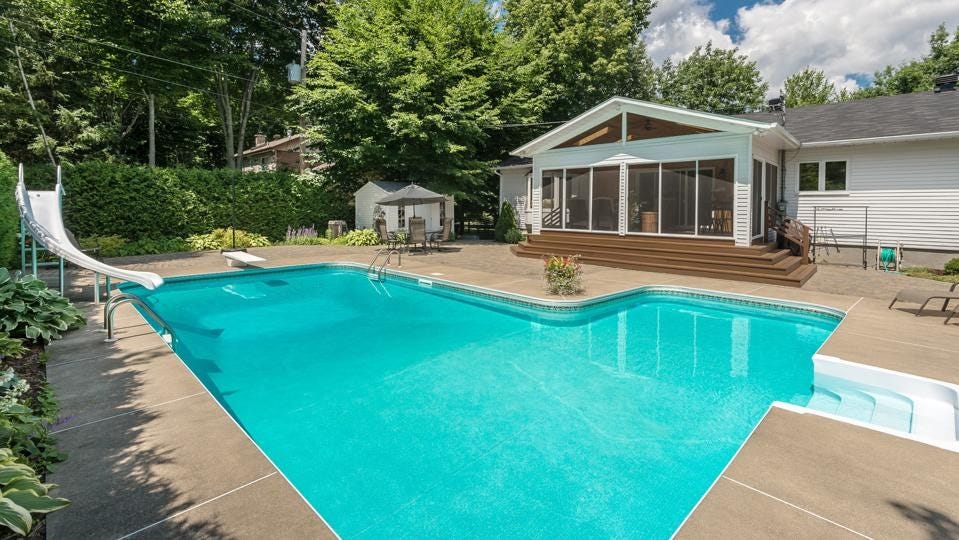What type of pool requires the least maintenance?
When I wash dishes, I love the dishwasher safe ones. I simply put them in the dishwasher, start the wash cycle and move forward until they are clean. So easy!
In comparison, hand wash only dishes are ridiculously high maintenance. Scrubbing them, I hate them. Sorry, Abraham Lincoln mug.
Washing dishes is nothing compared to cleaning a pool. How can you make sure your pool is dishwasher safe, as low maintenance as possible?
The TYPE of pool you have can make or break your maintenance satisfaction. Interior finish, durability and more can dramatically increase or decrease your task list (and costs).
We specialize in fiberglass pools, but we know that all 3 types of pools have their place in the market. There are advantages and disadvantages to each!
Maintenance is just one aspect of this, but it can make a big difference in your pool’s long-term satisfaction.
Even if you don’t mind the time and cost of maintenance, it is something to consider. We want to inform you of all the expenses you’ll need to consider, so you can make the best decision for you and your family.
Table of Contents
Which type of pool has the least amount of maintenance?
Concrete pools require the most maintenance of the 3 types, and it can be very expensive ($27,400 over 10 years). Vinyl-lined pools need slightly less, so maintenance costs less ($11,500 over 10 years). Fiberglass pools require the least maintenance and cost the least ($3,750 over 10 years).
Concrete Pool Maintenance
Concrete pools require the most maintenance of the three pool types. That doesn’t make them bad! But you must consider its needs.
Maintain water chemistry
Every week, you should check that the pool’s chemistry levels are in the ideal ranges:
Total Alkalinity: 80-120 ppm
PH: 7.2-7.8
Calcium hardness: 200-400 ppm
Stabilizer (cyanotic acid): 20-50 ppm
Chlorine: 2.0 to 3.0 ppm
Gypsum surfaces require the most TLC of all interior finishes. The alkaline finish affects the pH of the water, so you have to work harder to keep the water statistics in the ideal range.
Each type of pool requires weekly water checks, but concrete pools work best when you add acid daily.
Scrub with a steel brush for algae
[ggiesshortcode]
Plaster is also super porous.
Normally, I’m all about nature and greenery, but not so much when it comes to the pool.
To keep your concrete pool walls clean, you need to scrub them with a steel brush every week. The steel brush gets into the nooks and crannies to brush away any algae that may be growing.
The sad fact is that once the algae enters the surface of your pool, it keeps coming back. It’s insidious like that, like an ex-boyfriend who keeps calling even though you told him not to.
An interior tile finish is non-porous, so you don’t have the algae problem. However, tile is very expensive as a pool surface, and if you wait too long to resurface, it will start to fall off.
Acid wash a concrete pool
Every 3 to 5 years, your concrete pool needs a professional acid wash.
This removes a thin layer of plaster and penetrates the pores to kill algae and remove stains.
The process requires a gas mask that looks straight out of World War II. I wish I were kidding.
The exact cost of a professional acid wash depends on the size of the pool, location, accessibility and time of year. It’s usually around $450.
Concrete Pool Refinishing
This is the equivalent of a concrete pool replacing a liner, only worse.
Every 10 to 15 years, maybe 20 years, you have to resurface a concrete pool. The plaster is discolored and rough looking, as well as algae. Pebbles in the exposed aggregate stand out.
It costs $10,000 or more, which is not pretty.
“I don’t need to resurface my concrete pool!” People complain. “It’s a waste of money!” So they don’t resurface, then complain about how bad their concrete pool looks.
Does that sound exhausting? You’re not alone.
Many concrete pool owners choose to hire a professional pool cleaning service each swimming season.
It’s perfectly valid! It saves them time and effort to do it themselves.
But keep in mind, a pro costs about $500.



